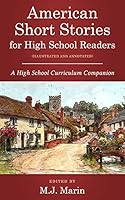Description
CONTENTS: Dickens in CampA Sappho of Green SpringsComplete Poetical WorksSelected Short StoriesStories In Light And ShadowTwo Men of Sandy Bar (a play)Urban Sketches* * * * * PREFACE: A few comments from acual aquaintances of BRET HARTE:In the early days I liked Bret Harte and so did the others, but by and by I got over it; so also did the others. He couldn't keep a friend permanently. He was bad, distinctly bad; he had no feeling and he had no conscience.- Mark Twain's AutobiographyHarte is a liar, a thief, a swindler, a snob, a sot, a sponge, a coward, a Jeremy Diddler, he is brim full of treachery, and he conceals his Jewish birth as if he considered it a disgrace.- Letter to W. D. Howells, 6/1878Harte, in a mild and colorless way, was that kind of man--that is to say, he was a man without a country; no, not man--man is too strong a term; he was an invertebrate without a country. He hadn't any more passion for his country than an oyster has for its bed; in fact not so much and I apologize to the oyster.- Mark Twain's AutobiographyI detest him, because I think his work is 'shoddy.' His forte is pathos but there should be no pathos which does not come out of a man's heart. He has no heart, except his name, and I consider he has produced nothing that is genuine. He is artificial.- interview in Sydney Australia Argus, 9/17/1895 Now, you are probably wondering why one would want to read a collection of work by such a dastardly fellow. Here’s a couple possible reasons: Bret Hart has been generally accepted as the one American writer who possessed above all others the faculty of what may be called heart appeal, the power to give to his work that quality of human interest which enables the writer and his writings to live in the memory of the reading public for all time. By reason of that gift of his Bret Harte has been popularly compared with his great contemporary beyond the seas, greatest of all sentimentalists among writers of fiction, Charles Dickens.Just how far the younger author selected the elder for his ideal, built upon him, so to speak, & held his example constantly before his mental vision, may be always a matter of debate amongst students of literature. There can be no question of the genuineness of the Californian writer's admiration of him who made the whole world laugh or weep with him at will. It is recorded Harte that at seven years of age he had read Dombey & Son, and so, as one of his biographers, Henry Childs Merwin, observes, began his acquaintance with that author who was to influence him far more than any other. Merwin further declares that the reading of Dickens stimulated his boyish imagination and quickened that sympathy with the weak and suffering, with the downtrodden, with the waifs and strays, with the outcasts of society, which is remarkable in both writers. The spirit of Dickens breathes through the poems and stories of Bret Harte just as the spirit of Bret Harte breathes through the poems and stories of Kipling. Bret Harte had a very pretty satirical vein which might easily have developed, have made him an author of satire rather than of sentiment. Who can say that the influence of Dickens, coming at the early, plastic period of his life, may not have turned the scale?Another of his biographers, T. Edgar Pemberton, says his admiration for Charles Dickens never waned, but on the contrary, increased as the years rolled by. Harte himself, referring in later years to his childhood days, to his father's library and the books to which he had access, spoke of the irresistible Dickens. Mr. Pemberton states, also, that Bret Harte always felt that he owed a deep debt of gratitude to Charles Dickens.Small wonder, then, that, Bret Harte no matter how unconsciously, should have adopted here and there something of the style and some of the mannerisms of Dickens. This is directly traceable in his writings, even to the extent of his resorting, here and there, to oddities of expression which were peculiarly Dickensian.The following poem Dickens In Camp is held by many admirers of Bret Harte to be his masterpiece of verse. The poem is so held for the evident sincerity and depth of feeling it displays as well as for the unusual quality of its poetic expression.


 Amazon UK
Amazon UK